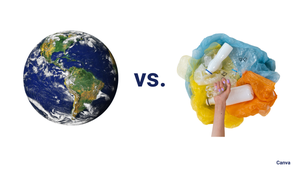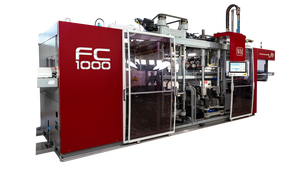Teknor Apex has expanded its options for molders of interior automotive parts by offering styrenic thermoplastic elastomers (TPEs) in its Sarlink range, alongside widely used Sarlink thermoplastic vulcanizates (TPVs). This expansion is in keeping with Teknor Apex's mission of offering multiple compound choices for the same application. The compounds will be introduced at Fakuma 2015 in Friedrichshafen, Germany, at booth B5/5315.
October 2, 2015
Offered alongside TPVs in the company's Sarlink range of elastomers, the new Sarkink ML-1100 and ML-1600 series styrenic TPEs are general-purpose and enhanced-performance offerings, respectively, and are available in a range of hardness levels. Both series exhibit higher flow than comparable TPV grades, enabling them to be molded into more complex, intricate geometries and to improve cycles through reduced packing and cooling times. Particularly in applications where TPVs could be considered over-engineered with respect to performance requirements, the new styrenic TPEs also provide cost advantages, said the company.
Teknor Apex recommends its new styrenic molding grades for such automotive interior applications as bin mats, cup-holder liners and soft-touch grips for knobs and buttons. These TPEs are already in commercial use in applications for Chrysler, Ford and General Motors, and are UV-stable, resist abrasion and scratching, are easily colored, provide good surface appearance and tactile properties, and exhibit low fogging and odor, said Teknor Apex.
Sarlink ML-1100 materials are general-purpose grades that "provide the best balance of cost and performance and are recommended for cost-sensitive applications," said the company's information. Sarlink ML-1600 has a specific gravity of 1.0, and is "more similar to TPVs in terms of density and properties but offer a better cost/performance balance." Due to shear viscosity values lower than those of Sarlink ML-1100, this grade exhibits better flow properties.
"While some automotive interior applications require the outstanding physical properties of TPVs, our new Sarlink ML-1100 and ML-1600 series styrenic TPEs exhibit excellent performance in less-demanding applications while providing advantages in cost and processing," said Jeffrey E. Dickerhoof, Senior Marketing and Sales Manager for the Thermoplastic Elastomer Division of Teknor Apex. "By offering both styrenic TPE and TPV elastomers, our goal is to help the customer to select the best possible material for an application, and we intend to extend this polymer neutral approach by soon offering styrenic alternatives to TPVs in automotive exterior uses, as well."
About the Author(s)
You May Also Like




